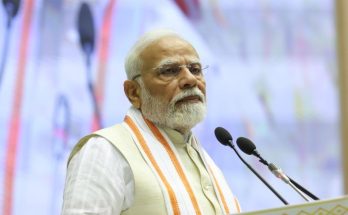New Delhi/IBNS: Britain has said it wants Free Trade Agreement with India but the negotiations will not include wider immigration commitments for Indians or provide access to Britain’s labour market for Indian workers. However, the discussions can include temporary business visas for Indians.
Trade Minister Kemi Badenoch emphasized that the focus of the talks is on trade and economic cooperation.
The trade talks between Britain and India were initiated in January of the previous year, and Prime Minister Rishi Sunak has emphasized the importance of prioritizing quality over speed in these negotiations.
Last year, Interior Minister Suella Braverman sparked controversy with her comments about the potential impact of Indian migrants during trade talks.
She expressed concerns about both an “open borders migration policy with India” and individuals who may overstay their visas.
Her remarks stirred a debate regarding immigration policies and their relevance to the trade negotiations.
“An FTA with India will not contain commitments on immigration or provide access to the UK domestic labour market,” Badenoch said in a written response to lawmakers published on Thursday.
“There will also be no agreement to anything which undermines the principles or functioning of the UK’s points-based immigration system, or which undermines the UK’s ability to control its own border.”
She added that the negotiations would discuss business mobility, “which would make it easier for highly skilled professionals to deliver services in each other’s markets on a short-term and temporary basis.”
Last year, Interior Minister Suella Braverman sparked controversy with her comments about the potential impact of Indian migrants during trade talks.
She expressed concerns about both an “open borders migration policy with India” and individuals who may overstay their visas.
Her remarks stirred a debate regarding immigration policies and their relevance to the trade negotiations.





